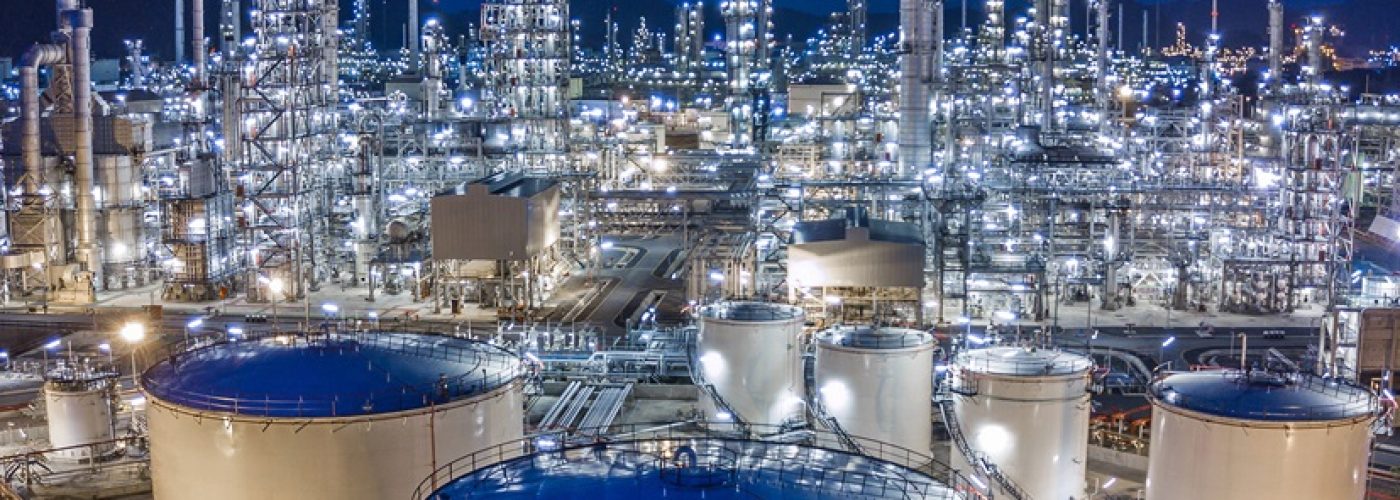Any business that does oil refinement or something similar must know about fluid catalytic cracking and fluid catalytic cracking units, which some in the industry abbreviate as FCCUs. We’ll go over both of those concepts in detail in the following article.
What is Fluid Catalytic Cracking?
Fluid catalytic cracking is part of the complex, lengthy gasoline production process. If you’re dealing with catalytic particles, you’ll soon discover that they convert long-chain, thick hydrocarbons. These come from crude oil. You’re trying to create gasoline from those because it’s profitable and beneficial for humanity.
You’ll need what those in the industry call a riser line. There, you can refine the long-chain hydrocarbons by fluidizing them. You blow them upward at a very high velocity, and as they rise, they react. This produces a coke-coated catalyst.
In your reactor, you’ll have two cyclone sets. These work on the hydrocarbons by feeding them into the regeneration section. An air grind fluidizes them. At that point, you can burn off the catalyst particles that you no longer need.
The catalyst absorbs the excess heat, and you can control the cracking reaction safely and expediently. This is where FCCUs come into play.
What is a Fluid Catalytic Cracking Unit?
You’ll need a fluid catalytic cracking unit if you want to make safely refined gasoline and similar products. What you need to do is make sure to take care of these units if you have some in a warehouse or somewhere similar.
You must keep a close eye on them because they can sometimes sustain damage during the gasoline refinement cycle. With these units, you’ll have refractory linings in the major vessels and transfer lines. If you look at them after heavy use, you may uncover damage.
You can expect that with heavier use unless you examine these units after each refinement process. You must appoint an expert who can examine your FCCUs regularly. That way, you do not risk any costly and dangerous equipment malfunctions.
How Can You Repair a Damaged FCCU?
If you do see that you have a damaged FCCU, you’ll need to stop gasoline production while you repair it. Once you start learning about these units, you’ll soon find that they have six major components, any of which can potentially sustain damage with heavy use.
The six components include the distribution rig, your overhead lines, the slide valves, the internal cyclones we discussed earlier, the regenerator, and the reactor itself. They’re all delicate and costly.
If you look at your FCCU and see damage, you’ll need to bring in a company to repair it. Such companies do exist, but you’ll want to locate one that has an excellent industry reputation. You’ll also want one that does not charge an exorbitant price.
When you look at an FCCU repair company’s website, you’ll want to see some evidence that they can do the job right. You might look for former client recommendations. You’ll also want to see what training their technicians received.
Anyone who examines and tries to fix your FCCU must know what they’re doing. If they don’t, and they’re only faking their credentials, they might make the situation worse and endanger your workers. They can also cost you more production time if they make the unit worse instead of better.
What Else Do You Want from Your FCCU Repair Company?
When you contact a company to repair your FCCU, you’ll also want one that knows about all the potential problems that these units can develop as time passes. For instance, the company you hire should know how to fix a unit with silica mitigation issues or independent anchoring system problems.
You might want a company that can do some IDA and stud welding. You may need hexavalent chrome mitigation instead. Some businesses that do this kind of refinement need hydro-demolition, so the company you hire should know all about that as well.
You should know very quickly when you talk to a company representative whether this business entity can repair your FCCU and get it up and running again. They’ll know all the appropriate terminology and have the latest tools and techniques mastered. You can’t fake this knowledge.
Additional Requirements
As you’re narrowing down the list regarding who should repair your faulty or damaged FCCU, you’ll need to think about availability as well. Maybe someone in your area can fix your FCCU, but they have a long wait time because they’ve got other clients in line ahead of you.
That probably won’t work for you. Remember that as a refinery or an entity that uses FCCUs, you probably want to get back to work as soon as possible. If you have to wait weeks for the repairs and new components you need, that won’t do you much good.
The repair company you hire should also have the parts you need on hand. If they need to wait for weeks to get someone to ship them those parts, you’ll probably have to go with someone else.
Finally, you should establish a rapport with the company you hire. You and the techs they send over won’t be best friends, but they need to have a positive attitude. If you get someone surly who doesn’t seem to want the job, that won’t work.
You’re giving this company an opportunity and probably paying them well to get your FCCU up and running again. They should appreciate that and respect you. If they don’t, you should go with another company that can give you prompt service, a fair price, and also has excellent customer service and response time.
Once you find a company to service your FCCUs, you might use them for many years to come. If you’re constantly using those FCCUs for refining, you’ll likely need service for them periodically.
You can call the entity you use and get them to send someone every time you need that service. Your two companies can benefit from each other over the years.





